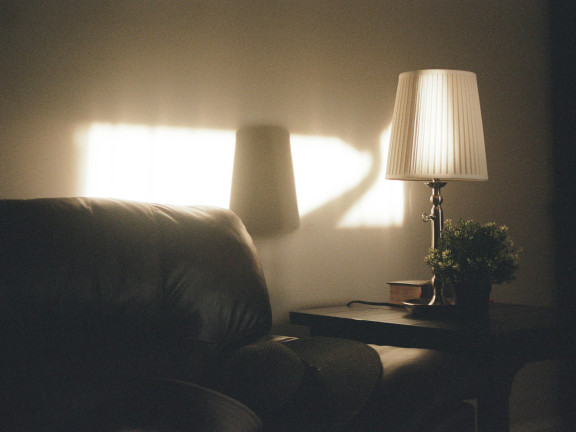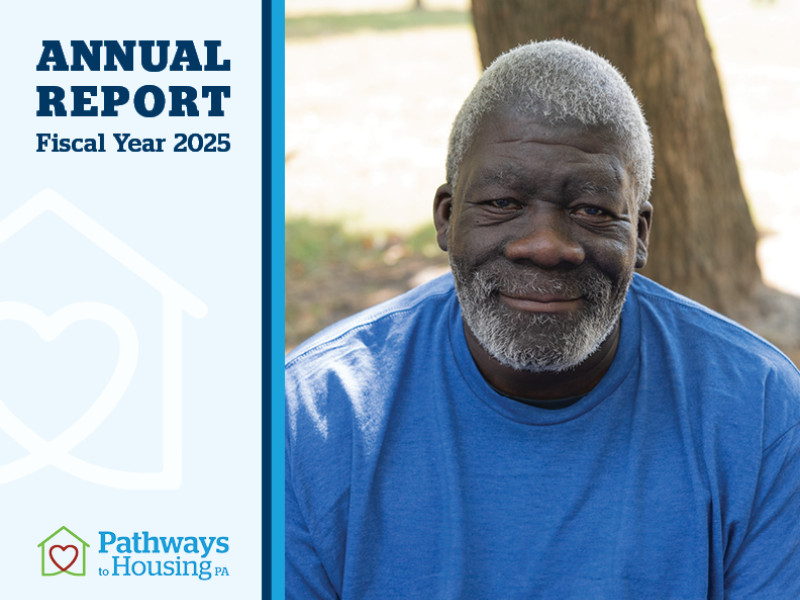The Role of Furniture in Stability and Dignity

USA Today reported earlier this year that "A recent NerdWallet survey found that 57% of Americans said they were living paycheck to paycheck. As wealth inequality continues to rise, more than half of the nation is in effect 'one crisis away from homelessness,' according to the U.S. Interagency Council on Homelessness."
It's something we know all too well at Pathways to Housing PA. Homelessness isn't something that individuals and families ask for, strive for, or want. It's a result of systemic injustices and a lack of social support.
While there are services and programs available for people experiencing homelessness, one thing they all lack is choice. Nonprofits are underfunded and have constant waiting lists for their services. For the most part, they are trying to keep the doors open and meet basic needs for their clients. This means there isn't much room to provide options or choices for program participants - you get what you get.
Furniture as the Foundation of Stability
Stability starts with having your basic needs met, and for someone moving out of homelessness, furniture is part of that foundation. A furnished home restores a sense of comfort, safety, and dignity that an empty space cannot provide. And when people have the ability to choose the furniture that fills their home, that dignity is strengthened in a real and immediate way.
When there’s no real choice or options, dignity disappears. Without the ability to make even small decisions for yourself, you lose the sense of control and self-worth that dignity depends on. People who are already feeling shame and guilt over their housing situation feel as though they should be grateful for any help they get, regardless of how helpful those things really are. Wrong size shoes? At least your feet are covered. Tight sweater? Can't complain, or else you'll go without and be cold.
Why Quality and Intentionality Matter
I've worked with social service organizations for more than 10 years now, and the items I've had to turn away as donations are truly mind-blowing. I've had dirty, unwashed underwear tossed into a bin collecting school supplies. I've had a home goods store donate boxes of unsorted, broken, dirty returned items. All of those items were drenched by the used, leaking expandable water hoses that were popular until everyone realized they didn't work and returned them. I've had people drop off used stilettos and slippers with holes in them, and prom dresses donated mid-summer to an organization serving adults. It's hard to say no, but also, used stilettos won't keep anyone living unsheltered feel warm or safe.
The Philadelphia Furniture Bank operates differently. We only accept specific donations, so that we can ensure that we are procuring items that are in good quality and high demand. If we say no on behalf of our clients, it removes the need for our clients to decline something that isn't actually useful to them. If you wouldn’t offer your ripped, stained couch to your friend, why would we offer it to our clients?
Choice as a Pathway to Dignity
When clients visit the Philadelphia Furniture Bank, they are guided through our showroom floor by a personal shopper who is dedicated to supporting them in identifying furniture that fits their personal style, family size, and new home. They can take all the time they need to test out the furniture, take photos, and envision the furniture in their new home before they commit to the pieces they will take home.
Offering choice restores the dignity that is often lost throughout the process of experiencing homelessness, finding help, relying on the generosity of others, and finally getting back on your feet. Making choices, even small ones, help our clients develop a sense of self and build confidence in their decision-making skills. Especially for those who have experienced homelessness, choice is a vital part of recovery and regaining a sense of control over your life.
As you are thinking about helping others through this week's Hunger and Homelessness Awareness week and beyond, remember the importance of choice in restoring dignity. Ask your favorite nonprofit how you can support them in providing choices to their clients, and what donations would be most useful to them right now or in the future.


